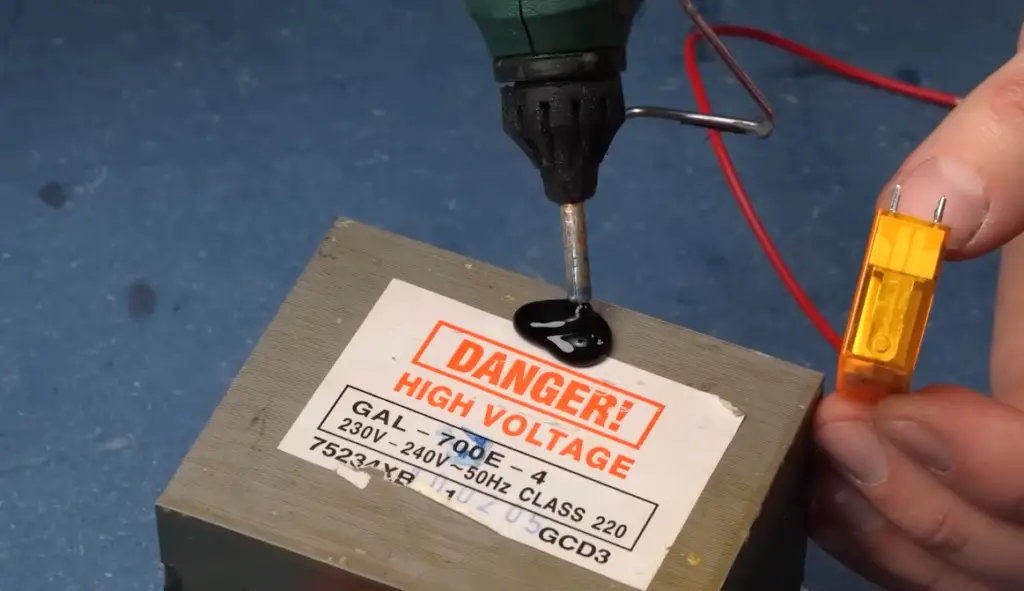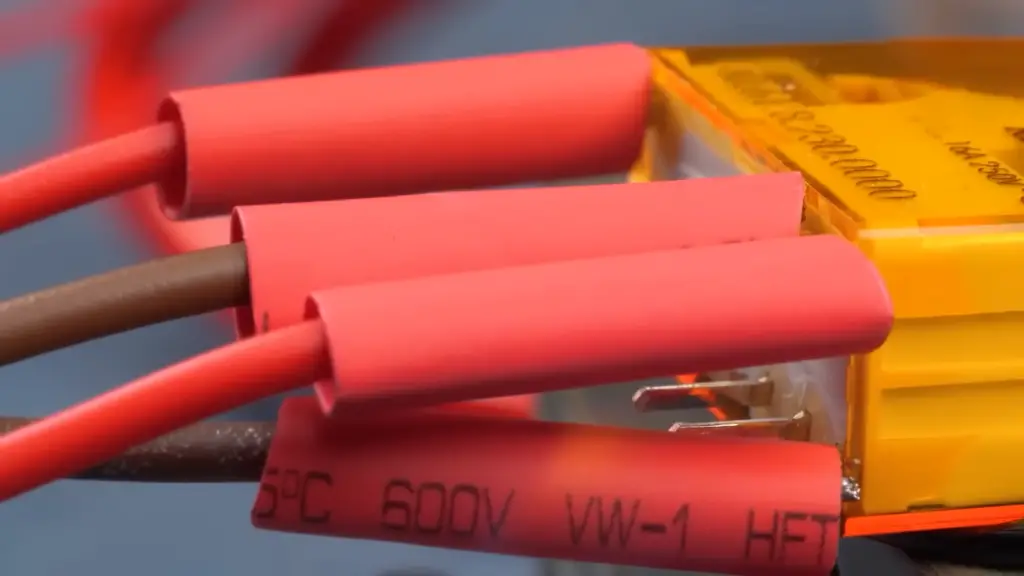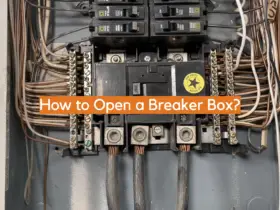Are you interested in becoming an electrician in Oregon? Becoming a certified electrician requires both knowledge and skills, which will come together to enable you to become a highly competent and successful professional. As the states licensed electrical worker, having expertise and experience across numerous trades with varying complexities can give you an edge over the competition. To help get you started on your journey to become a qualified electrician in Oregon, this article will break down all of the necessary steps needed so that one day soon, you can take your place alongside other professionals as part of this rapidly growing industry.
Introduction to Becoming an Electrician in Oregon
If you possess the ambition and drive to become an electrician, then Oregon is a great place for you to pursue this career. Professional electricians in Oregon must complete several steps in order to become licensed. These include formal education, rigorous practical training, passing state-mandated examinations and obtaining necessary work experience. The process of becoming an electrician may take some time. However, after completing all the steps required by the state of Oregon, you will be able to practice as a professional electrician with confidence and enter into a rewarding career in a growing industry.

Education & Training Requirements for Electricians in Oregon
To work as an electrician in Oregon, it is mandatory to have a license issued by the Oregon Construction Contractors Board. To qualify for a license, you’ll need to meet certain requirements and pass an exam.
Education: To be eligible, you need to either have completed at least 8,000 hours of on-the-job training as an apprentice within the past 5 years or have 4 years of military experience in electrical work. The apprenticeship program typically consists of 640 hours of classroom instruction at an accredited school and 7,360 hours of supervised practical experience in residential, commercial, or industrial wiring. Additionally, most employers require applicants to have either a high school diploma or GED equivalent. [1]
Testing & Licensing: After completing your education and/or training requirements, you must then pass an exam administered by the Oregon Construction Contractors Board. This exam is divided into two parts: a general knowledge section and a technical specialty section. After you pass the exams, you will meet the requirements to obtain your license from the Oregon Construction Contractors Board.
Continuing Education: Electricians in Oregon must complete 16 hours of continuing education every two years in order to keep their license.. This requirement includes 8 hours of electrical code-related topics and 8 hours related to safety issues or practices. The courses must be approved by the Oregon Construction Contractors Board prior to attending them in order to qualify for credit towards your license renewal requirements.
Oregon has extensive regulations regarding electrician licensing and training requirements, so it’s important that you thoroughly understand the requirements before attempting to become an electrician in the state. With the proper education, training, and licensing, you can become a licensed electrician in Oregon. [2]

How to Obtain Your Electrician License in Oregon
If you want to become an electrician in Oregon, you need to obtain a license from the state’s Electrical and Elevator Board. To qualify for a license, applicants must complete a certain amount of education and/or experience requirements.
In order to apply for a license, you must first meet one of the following criteria: have at least four years of journeyman-level electrical experience as documented by verifiable letters of reference; possess a valid certification or degree from an accredited post-secondary institution that includes completion of at least 400 hours of approved related coursework in fields such as electrical theory and wiring; or be currently enrolled in an approved apprenticeship program with at least 4,000 hours completed.
Once you have obtained your license, you will need to stay apprised of any changes in regulations or codes that may affect your work. Additionally, you are required to renew your license every two years in order to stay valid.
By obtaining a license, qualified electricians in Oregon can enjoy professional recognition for their skills as well as potential improved job opportunities and increased wages.
Types of Electrical Exams Required in Oregon
The State of Oregon requires anyone working as an Electrician to obtain a license. To become licensed, applicants must pass two tests: the Business and Law exam and the Electrical Trade exam.

The Business and Law Exam covers topics such as customer service, contracts, regulations/codes, risk management and general principles related to running a business. The exam includes 80 multiple-choice questions with a time limit of three hours.
The Electrical Trade Exam covers topics such as electrical theory, safety standards in relation to wiring practices, motor control circuits, etc. It also includes 100 multiple-choice questions with a time limit of four hours.
To obtain their license after passing the exams, applicants must submit an application form for the Oregon Construction Contractors Board (CCB). Applicants must also be at least 18 years of age and have a minimum number of years of electrical experience. They must also pay a fee to take the exams and submit documents, such as transcripts, that prove they have completed an apprenticeship program or other type of training in an approved field.
Once all requirements are met and applicants pass their exams, they will be able to obtain their license from the CCB and become an electrician in Oregon.
In addition to obtaining a license, those seeking to become Electricians in Oregon should consider becoming certified as Journeyman Electricians. This certification is not mandatory but can help boost employment opportunities and demonstrate higher levels of skills and knowledge in the field.
To become certified, applicants must have a minimum number of years of electrical experience and pass an examination that covers topics such as wiring practices, safety standards, motor control circuits, etc. The exam includes 80 multiple-choice questions with a time limit of three hours.
With the proper training, certifications and licenses in hand, those seeking to become Electricians in Oregon will be ready to enter the workforce and begin their new careers. [3]
Common Work Environment for Electricians in Oregon
Electricians in Oregon may be employed by electrical contractors, engineering companies, and other establishments.
They can also work independently on residential or commercial projects. Most electricians in Oregon are involved in the installation of electrical wiring systems and components for any structure’s power supply system. Electricians must be familiar with building codes, ordinances, safety regulations, and other technical documents relating to their industry and specific job tasks.

Their common worksites may range from homes to factories, hospitals to schools; they could even work outdoors installing lines to utility poles. Working conditions vary according to the type of project they are working on at a given time – some jobs may require long working hours or tedious physical labor while others may put electricians in tight spaces or require climbing and working from ladders. Electricians must be safety conscious regardless of the work conditions as there is a high risk of injury when dealing with electricity and electrical components.
When employed by larger companies, electricians in Oregon may have to travel long distances or work out-of-state jobs if requested. They must also understand how to read blueprints, use specialized electrician tools, maintain quality control standards on job sites, and complete all paperwork related to their assignments accurately and in a timely fashion. [4]
Starting a Career as an Electrician in Oregon: Tips and Tricks
Becoming an electrician in Oregon is not as difficult as you may think. By following some simple steps, you can be on your way to a successful career in the electrical industry. Here are some tips and tricks that will help you get started:
- Get Your Education: In order to become an electrician in Oregon, you must have at least a high school diploma or equivalency certificate (GED). You then need to complete an approved apprenticeship program or vocational training course. This will give you the knowledge and hands-on experience necessary for working with electricity.
- Obtain Licensing: The state of Oregon requires all electricians to obtain a Master Electrician License from the Construction Contractors Board (CCB). To obtain a license, you must pass the licensing exam and meet all other requirements set forth by the CCB. After obtaining your license, you must renew it every three years in order to remain up-to-date with safety standards and regulations.
- Get Certified: In addition to obtaining a Master Electrician License, you may also consider getting certified in certain specialties or areas of expertise such as commercial wiring, residential wiring or green energy systems. Obtaining certifications will enable you to expand your knowledge base and be able to offer more specialized services.
- Join Professional Organizations: Joining a professional organization is a great way to stay current on industry trends, network with other electricians, and gain access to job opportunities. Professional organizations such as the Oregon Electrical Industry Association or National Electric Contractors Association offer great resources and support for electricians in Oregon.
- Look for Job Opportunities: After completing the necessary steps outlined above, it’s time to start looking for job opportunities. You can look online through job websites or classified ads as well as attend job fairs or visit local businesses that may need your services. With a little bit of luck and hard work, you’ll soon find the perfect job as an electrician in Oregon!
- Stay Up to Date: The electrical industry is ever-changing, so it’s important that you stay up to date on the latest trends and regulations. Read industry magazines or take continuing education classes to ensure that your knowledge base remains current. This will help you provide the best service possible for your clients and keep your skills sharp.

These are just a few tips on how to become an electrician in Oregon. If you follow these steps and remain dedicated, you can quickly become a successful electrician with a thriving career in this field! [5]
Benefits of Being a Licensed Electrician in Oregon
Once you’ve achieved your Oregon electrician license, you can reap the rewards of this career. As an electrical contractor, you will have access to numerous benefits, such as:
- Competitive pay: Depending on your experience and type of work performed, professional electricians in Oregon make anywhere from $20 to $40 per hour. This is much higher than the average wage for most other occupations.
- Job security: Electricians are always in demand because lighting and electricity are essential components in any home or business. With a steady flow of work available, electricians often don’t have to worry about unemployment or long periods without employment.
- Interesting job activities: Working with various wiring projects can be interesting and satisfying. Electricians often work in tight places or must climb ladders, so the job is never dull.
- Opportunity for growth: With experience and education, electricians can advance to supervisory roles or open their own businesses. This type of career provides plenty of room for personal growth and entrepreneurship.
In addition, electricians in Oregon are strongly encouraged to participate in continuing education courses. Doing so will ensure that they stay up-to-date on industry trends as well as local codes and regulations related to electrical work.
By staying current with these requirements, licensed electricians will be able to provide safe wiring systems for both residential and commercial buildings in Oregon. [6]
How Long Does It Take To Become A Master Electrician In Oregon?
To become a master electrician in Oregon, you must first complete an apprenticeship program. The apprenticeship typically takes 4 to 5 years to complete and consists of 144 hours of classroom instruction as well as 8,000 hours of on-the-job training. After completing the apprenticeship, you will need to pass an exam administered by the State Electrical Board in order to receive your license. You will also need to maintain continuing education requirements every two years in order to keep your license up-to-date. With all that said, it usually takes between 6 and 7 years total for someone to become a master electrician in Oregon.
Are Electricians in Demand in Oregon?
Electricians are in high demand in Oregon. With a strong economy, larger population growth, and an increase in infrastructure projects, electricians are needed to help power the state.
With more people using electricity every day, certified electricians are needed to keep up with demands. They install, maintain, connect, and repair electrical systems used for heating/cooling appliances, lighting fixtures, communications systems, security systems etc. Electricians also work with wiring and electrical components in properties, homes, and office buildings.
Salary Factors
Electricians in Oregon can expect to make good money, depending on the level of experience and job. The median annual wage for electricians in Oregon is $59,490. Those at the upper end of the earning range can make up to $83,350 per year. Employment growth estimates indicate that Electrician positions will be strong through 2028 with a projected 7% increase in jobs during this time. With additional experience or specialized certifications, even higher wages may be possible.

Additionally, there are other factors which contribute to overall salary such as overtime pay, bonuses and tips from customers. Working night shifts or holidays may also affect total earnings due to higher hourly rates offered for those hours. Highly skilled technicians may also receive higher salaries due to rare or specialized skills they possess. Lastly, Electricians who are employed in more urban areas may be able to command higher wages than those employed in rural regions of the state.
Overall, electricians in Oregon have a strong earning potential with plenty of opportunities for growth and higher earnings as they gain experience. With employment trends pointing towards further job openings, now is an excellent time to consider becoming an electrician in Oregon.
FAQ
How many years does it take to become an electrician in Oregon?
It typically takes four to five years of apprenticeship to become a licensed electrician in Oregon. During this time, you must complete 8,000 hours of work and attend 180 classroom instruction hours. To be accepted as an apprentice, you must have completed high school or obtained a GED and be at least 18 years old. Once the apprenticeship is complete, applicants are eligible to sit for the state-administered exam which tests their knowledge on electrical theory and local laws and regulations. Passing this exam will make the individual eligible for licensure as a journeyman electrician in Oregon.
Do I need to take classes to become an electrician?
Yes, all electricians in Oregon must complete at least 180 hours of classroom instruction during their apprenticeship. These classes cover topics such as electrical theory, safety practices, and local laws and regulations.
What is the average salary for an electrician in Oregon?
The average salary for an electrician in Oregon is $60,100 per year. This figure includes all levels of experience from apprentices to journeymen and master electricians. Salaries can vary depending on the size of the employer, region and type of electrical job. Generally, larger employers pay more than smaller ones, while unionized employees tend to make more money than non-union workers do. Additionally, experienced electricians can expect higher wages compared to entry-level positions. In addition to a base salary, some electricians may also receive health benefits and bonuses based on their performance or length of service with an employer. Electricians can also look forward to wage increases as they gain more experience in the field over time.
What type of license do I need to become an electrician in Oregon?
In order to become an electrician in Oregon, you need to obtain a Journeyman Electrician License from the Construction Contractors Board (CCB). To be eligible for a license, you must have eight years of experience in the electrical field and pass both a written and practical exam. You also need to have completed at least four years of apprenticeship training. Additionally, applicants are required to provide proof of completion of continuing education courses as well as have general liability insurance before they can obtain their license. Once licensed, electricians may work on any job that requires electricity but must check with local authorities if an electrical permit is needed for certain tasks.
What is the easiest state to get an electrical license in?
Oregon is one of the easiest states to get an electrical license in. To become an electrician in Oregon, you will need to pass a written test and provide proof of at least 8,000 hours of practical experience. You must also complete 4 year apprenticeship training program or submit evidence of equivalent education/training. Once you receive your license, you must renew it every two years by submitting continuing education credits and paying a renewal fee. Additionally, some counties within Oregon have their own requirements for electricians. For example, Multnomah County requires that all electricians obtain a Journeyman Electrician Certificate from the State of Oregon before they can perform work in the county. The Oregon Bureau of Labor and Industries (BOLI) oversees the licensing process and can provide more information about becoming an electrician in Oregon.
What is the Oregon electrician license exam?
The Oregon electrician license exam is required for those wishing to become a licensed electrician in the state. The exam consists of two parts: a written and practical test. The written portion covers topics such as electrical theory, codes and standards, safety requirements and electrical systems design. The practical part covers wiring methods and installation procedures. In order to pass this exam, applicants must score at least 70 percent on each section. Those who are successful will be awarded an Electrician Trainee (ET) License or an Electrical Professional (EP) License by the Oregon Building Codes Division. Both licenses require continuing education credits in order to maintain active status.
Useful Video: How to Become an Apprentice Electrician
Conclusion
The road to becoming an electrician in Oregon can take time and effort, but the rewards are worth it. With experience and dedication, electricians can make a great living helping to keep Oregon’s homes and businesses running safely. The state of Oregon also offers many licenses and certifications that electricians may choose to pursue in order to further their careers. Whatever path is chosen, taking the steps outlined here will ensure success on the journey to becoming an Electrician in Oregon.
Good luck!
References
- https://www.servicetitan.com/licensing/electrician/oregon
- https://build-oregon.com/skilled-trade/electrician/
- https://www.oregon.gov/boli/apprenticeship/pages/become-an-apprentice.aspx
- https://electricalschool.org/or/
- https://www.electricianschooledu.org/oregon/
- https://www.gyfted.me/how-to-become/certified-electrician/oregon-or













Leave a Reply